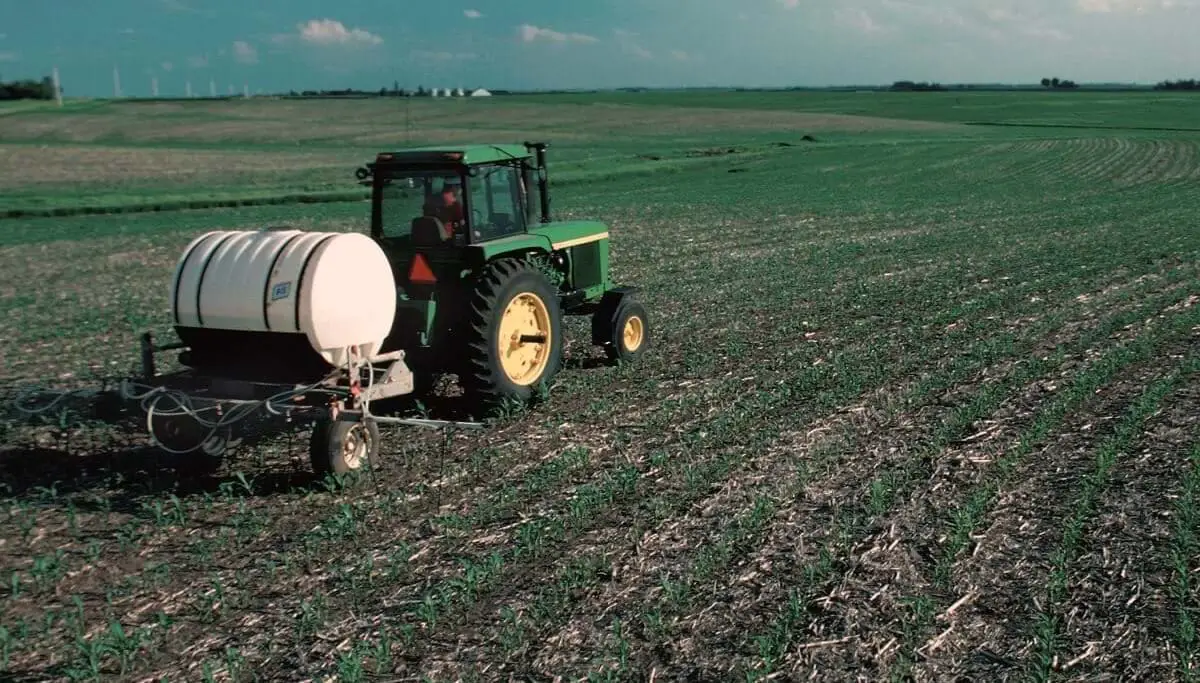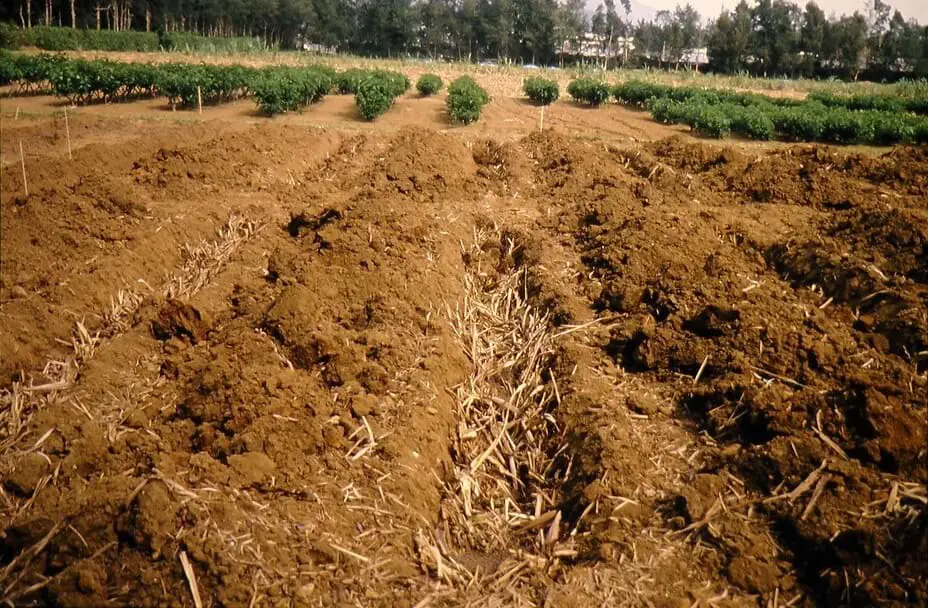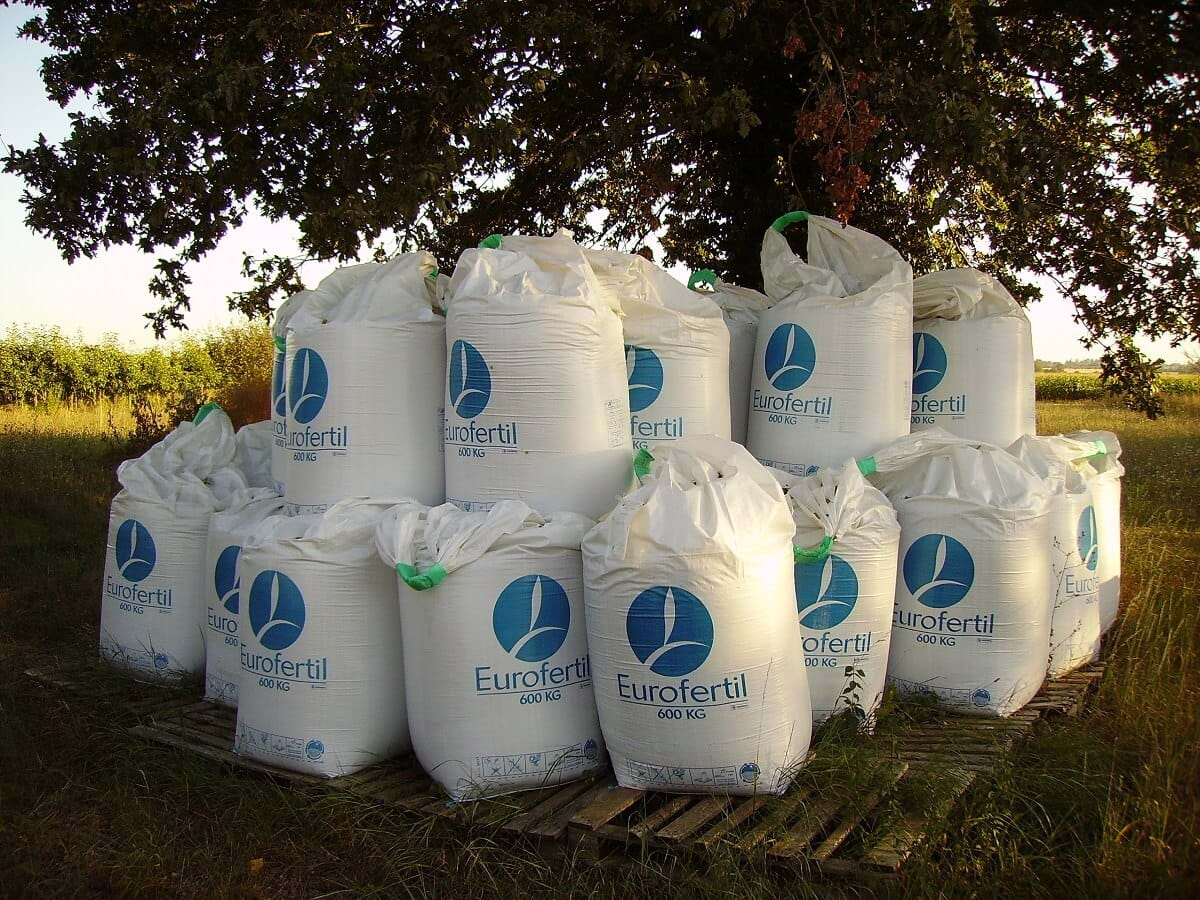37 Pros and Cons of Using Fertilizers
Advantages and Disadvantages of Fertilizers

There are many advantages and disadvantages when adding fertilizers to the soil. It doesn't matter if you are using synthetic or organic. I have added every pro and con that I could find for both of these fertilizer types.
Keep reading to learn all the pros and cons of using fertilizers on your soil or medium.
What are the benefits of fertilizer?
Advantages of Fertilizers
- 1) Can increase plant growth rate.
- 2) Can help increase crop yield at Harvest.
- 3) help support people's nutritional needs.
- 4) It helps to keep your garden as healthy and productive as possible.
- 5) Multiple crops yields every season.
- 6) More stable and predictable yields.
- 7) It can help to optimize the pH value of the soil.
- 8) Ensures plants are getting supplied with every nutrient they need.
Organic Fertilizer Pros
- 9) Organic Fertilizers can help to reduce soil erosion.
- 10) Organic fertilizer can provide Better Soil Structure.
- 11) Organic fertilizer offers a slow release of nutrients.
- 12) Organic fertilizer does not cause toxin build-up.
- 13) Organic fertilizer is Eco friendly.
- 14) Organic Fertilizers are harder to produce over-fertilization.
- 15) Organic Fertilizers reduce the risk of salt build-up in your medium.
Synthetic fertilizer Pros
- 16) Chemical fertilizers are highly reliable in the contents they contain.
- 17) Chemical fertilizer supplies an efficient source of nutrients.
- 18) Chemical fertilizers are inexpensive and easy to transport.
- 19) Chemical fertilizers provide economic advantages
- 20) Chemical fertilizers can provide nutrients quickly to many plants in soil and with Foliar feeding.
- 21) Plants are better able to protect against pests.

21 Pros of Using Fertilizers
1) Can increase plant growth rate.
Most fertilizers are high-nitrogen. High-nitrogen is known to help produce tremendous growth in plants. Ensuring the plant has all required nutrients from the fertilizer ensures faster and thicker growth.
2) Can help increase crop yield at Harvest.
Since our crops will grow faster throughout the season, they will be more significant. Larger plants will provide the gardener or farmer with a larger final harvest at the end of the season.
3) help support people's nutritional needs.
Using fertilizers allows us to grow crops in depleted soils. Fertilizers help make food affordable and reduce the costs of production. Since the cost of food gets reduced, it becomes accessible to more people.
4) It helps to keep your garden as healthy and productive as possible.
Since the plants will have all the nutrients they require and require them, they will be as healthy and productive as possible.
5) Multiple crops yields every season.
In some climates, the use of fertilizers can allow for multiple crops a year. Multiple crops a year is generally more feasible in environments where it is warm year-round. Multiple harvests are possible because of the increased growth rates fertilizers provide.
6) More stable and predictable yields.
Plants require specific conditions to produce high yields and grow properly. By supplying plants with the same condition as previous years, it is much easier to predict the final result at the end of the season.
7) It can help to optimize the pH value of the soil.
Fertilizers are known to alter the acidity levels of the soil. Plants require a specific PH range to maximize growth. PH levels too far off can prevent the plants from growing at all. Using the correct fertilizers, farmers can help ensure the soil stays with the optimal PH range for the crop type.
8) Ensures plants are getting supplied with every nutrient they need.
Fertilizers can provide any nutrient that may not be present in the soil at adequate levels. Being able to provide specific nutrients means the plants can grow as optimal as possible.
9) Organic Fertilizers can help to reduce soil erosion.
Organic fertilizers can contain beneficial microorganisms, nutrients, and organic matter, which help build more topsoil. Doing this every year or two will help prevent soil erosion from taking place.
10) Organic fertilizer can provide Better Soil Structure.
Organic fertilizers help to enrich the soil by slowly releasing nutrients into the ground. When organic fertilizers get included, the soil can better retain water and nutrients.
11) Organic fertilizer offers a slow release of nutrients.
Organic fertilizers release nutrients into the soil slowly. Slowly releasing nutrients help to ensure the plants get most of the nutrients instead of getting leached into groundwater. The chance of stressing the plants from over-fertilization gets reduced.
12) Organic fertilizer does not cause toxin build-up.
Synthetic fertilizers contain harmful acids and toxins that can start to build up in the soil. Organic fertilizers get made from biodegradable matter.
13) Organic fertilizer is Eco friendly.
We do not need to worry about polluting the waters or our soils with organic fertilizer. Organic fertilizer is environmentally friendly, sustainable, renewable, and biodegradable.
14) Organic Fertilizers are harder to produce over-fertilization.
While over-fertilization is still possible with organic fertilizer, it is much less likely when compared to synthetic versions.
15) Organic Fertilizers reduce the risk of salt build-up in your medium.
Again being biodegradable matter to create organic fertilizers, no harmful salts get added to our mediums. Since the salts are not present, salts can't start to build up like synthetic fertilizers.
16) Chemical fertilizers are highly reliable in the contents they contain.
Synthetic fertilizers have a predictable ratio of phosphorous, potassium, and nitrogen. This consistency is essential to produce efficient production on a commercial scale.
17) Chemical fertilizer supplies an efficient source of nutrients.
Unlike organic fertilizers that take time to get released into the soil, synthetic fertilizers are immediately available to the plant's root system.
18) Chemical fertilizers are inexpensive and easy to transport.
Compared to organic chemical fertilizers are inexpensive to make and purchase. Being created in a high concentration makes it more economical to transport.
19) Chemical fertilizers provide economic advantages
By allowing crop production to get maximized, it helps to prevent food shortages.
20) Chemical fertilizers can provide nutrients quickly to many plants in soil and with Foliar feeding.
Foliar feed is when you would have a solution of water mixed with fertilizer. The liquid gets applied to the plant's leaves, allowing for immediate uptake by the plants. Plants' nutrient deficiencies can get quickly resolved since watering with chemical fertilizers can provide the missing nutrients almost immediately.
21) Plants are better able to protect against pests.
The larger and stronger the plants grow, the less likely insects and other pests will kill off the plant.

What are the negative effects of fertilizer?
Disadvantages of Fertilizers
- 1) Alteration of the Ecosystem.
- 2) Incorrect use may do more harm and provide no benefit.
- 3) Groundwater pollution
- 4) Soil pollution
- 5) Over time, the soil can become less fertile.
- 6) Hard to balance short term gains with long term losses
- 7) Possible for plants to grow too rapidly
- 8) Can cause the harvest to have harmful elements.
Organic Fertilizer Cons
- 9) Chemical fertilizers get made from many nonrenewable sources.
- 10) Chemical fertilizers don't replace many trace elements. Over time these minerals get gradually depleted.
- 11) Long-term use of chemical fertilizer can alter the PH levels of the soil.
- 12) Chemical fertilizers may separate in storage.
Synthetic fertilizer Cons
- 13) Organic fertilizer has limited effectiveness.
- 14) Organic fertilizers are slow to see results.
- 15) Organic fertilizers may not contain the best ratio of nutrients.
- 16) Organic fertilizer can be expensive.
16 Cons of Using Fertilizers
1) Alteration of the Ecosystem.
Fertilizers can cause changes in the soil that hurt plant and animal life, including the beneficial organisms (such as worms and valuable fungi species) in the ground.
2) Incorrect use may do more harm and provide no benefit.
Providing too many nutrients can have adverse effects on plants, causing them to grow deformed to burning the plant. In really high concentrations, it can cause the plants to die off.
3) Groundwater pollution
Fertilizers have shown to be an issue for our groundwater. Anything we add to our soil will eventually get washed out into our groundwater sooner or later.
A large number of synthetic fertilizers added into the soil can significantly decrease the quality of our groundwater.
4) Soil pollution
High synthetic fertilizer usage is causing a large volume of salts and toxins to get built up in the soil.
5) Over time, the soil can become less fertile.
Most synthetic fertilizers only contain nitrogen, phosphorous, and potassium but are missing many other trace elements. Over time these minerals can get significantly reduced in the soil.
Many soils in many regions have got so significantly deficient, resulting in less nutrient-rich produce.
6) Hard to balance short term gains with long term losses
Using fertilizers will help to produce large crop productions within a season. Continued long-term use season after season can pollute the soil over the long run, making crop production no longer possible.
It is vital to use the minimum amount of fertilizer required for crop production to help ensure the soil stays fertile for future seasons.
7) Possible for plants to grow too rapidly
Fertilizer is like steroids for plants. Plant growth can be so rapid that their root development cannot sustain the plants' size.
When this happens, it results in large weak plants that become more vulnerable to pests and diseases.
8) Can cause the harvest to have harmful elements.
If too much incorrect fertilizer gets used, harmful elements from the fertilizer can end up in our food production. When using fertilizer for food production, it is vital to check that it is harmless when used in food production.
9) Chemical fertilizers get made from many nonrenewable sources.
Synthetic fertilizers get mostly made from nonrenewable sources, including fossil fuels.
10) Chemical fertilizers don't replace many trace elements. Over time these minerals get gradually depleted.
Depletion of these minerals can cause the food grown to be not as nutrient-rich.
11) Long-term use of chemical fertilizer can alter the PH levels of the soil.
With long-term use, the PH level of the soil can get altered. The change in PH can cause upset to beneficial microbial ecosystems, increase pests, and even release greenhouse gases.
12) Chemical fertilizers may separate in storage.
Over the season, while the synthetic fertilizers are in storage, cold weather could cause the liquid contents to separate. When this happens, we are left with inactive liquid near the top and nutrients on the bottom.
Using the nutrients the next season can cause us to have over or under-concentrated mixtures resulting in sub-par results.
13) Organic fertilizer has limited effectiveness.
Organic fertilizers may not get broken down when needed depending on the weather of the season. A deficiency in the plants can happen in cooler summers since the fertilizer is not getting broken down when needed. Without enough warmth, the nutrients will stay locked in and not get provided to the plants.
14) Organic fertilizers are slow to see results.
For the nutrients to get released, they need warmth and moisture. If the soil does not contain enough of either, the breakdown of the organic fertilizer will take more time and be less effective for plant production.
15) Organic fertilizers may not contain the best ratio of nutrients.
The exact ratio of nutrients is generally not known. The percentage of nutrients is usually also lower when compared to their synthetic counterpart.
16) Organic fertilizer can be expensive.
The price for organic fertilizers is significantly higher compared to the synthetic counterpart. Also, less can get transported because of all of the biodegradable matter that they contain.
Summary
Should You Use Fertilizers
If you are looking to use fertilizer for food production, you really should stick to an organic version.
But if you are looking to grow large plants, you do not plan to eat synthetic fertilizers that offer your plants' most significant growth rates.
While there are many benefits to adding fertilizer to our gardens, the best path is to follow permaculture farming. With proper design, permaculture is the best way to set up sustainable food production.
Similar Articles
Difference Between Organic Fertilizer and Chemical Fertilizer
Biochar Fertilizer
Green Manure For Clay Soil
Everything About Superphosphate Fertilizer
[1]https://environmental-conscience.com/fertilizer-pros-cons/
[2]https://greentumble.com/pros-and-cons-of-using-agricultural-fertilizers/
[3]https://ecogardener.com/blogs/news/the-pros-and-cons-of-organic-and-chemical-fertilizers
[4]https://emeraldlawnsaustin.com/organic-fertilizers-pros-cons/
[5]https://www.gardeningchannel.com/fertilizer-vs-no-fertilizer/
[6]https://www.canr.msu.edu/news/pros_and_cons_of_granular_and_liquid_fertilizers
[7]https://www.albertafarmexpress.ca/crops/the-pros-and-serious-cons-of-fall-fertilizer-application/
[8]https://www.mystayathomeadventures.com/pros-and-cons-of-organic-fertilizer/
[9]https://www.pthorticulture.com/en/training-center/pros-and-cons-of-using-controlled-release-fertilizers-in-the-greenhouse/
[10]https://todayshomeowner.com/debate-over-organic-chemical-fertilizers/2/
[11]https://getlawnstar.com/blog/granular-vs-liquid-fertilizer-which-is-better/
[12]https://blog.gardeningknowhow.com/gardening-pros-cons/pros-and-cons-of-using-manure-fertilizer/
[13]https://www.groworganic.com/blogs/articles/protecting-your-topsoil-from-erosion
[14]https://en.wikipedia.org/wiki/Fertilizer
[15]https://www.britannica.com/topic/fertilizer